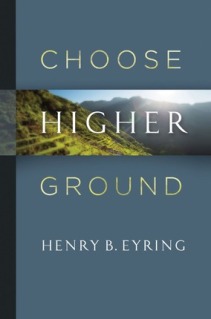 Twice a year, at the change of seasons, I perform the shanka prakshalana, an ayurvedic process that strengthens holistic living. More involved than this post can tolerate explaining and with a complexity that distracts from my purpose in writing today, I will abbreviate its meaning to say that it is meant to reset our souls to slough off the detritus of a former season and prepare for the next. I have done this East Indian practice for 3 years, and this is my 7th cleanse.
Twice a year, at the change of seasons, I perform the shanka prakshalana, an ayurvedic process that strengthens holistic living. More involved than this post can tolerate explaining and with a complexity that distracts from my purpose in writing today, I will abbreviate its meaning to say that it is meant to reset our souls to slough off the detritus of a former season and prepare for the next. I have done this East Indian practice for 3 years, and this is my 7th cleanse.
The physical side of the cleanse involves drinking a solution of salt water that as precisely as possible matches our blood’s salinity, such that the entire digestive tract is washed clean without the absorption mechanism of the body kicking in. It takes about three hours and involves 3 or 4 gallons of water. First solid matter is washed away, then the thick and slimy coating on our intestines washes away, then finally, the actual surface of one’s intestines is exposed, washing out the tiny inner surfaces of a very complex organ.
For 40 days afterward a very careful diet is followed because the natural flora of one’s body has to be restored. The first foods eaten are kicharee: a pablum of basmati rice, yellow mung dahl, and ghee (clarified butter) that is cooked to a porridge. This carefully reprepares the digestive tract to begin assimilating food again. Slowly, easily digestible foods are added – cooked vegetables, mild herbs, cultured dairy, then soaked and cooked grains, raw vegetables, other dairy, and spices, until finally one begins to eat meat again.
In the spring a different diet is followed as we are engaged in different activities than the fall, with opening-up, light foods, preparing for the hard external work of summer, whereas in the fall one consumes heavier foods intended to prepare for the hard internal work of winter. In order to make best use of the different fuels for these seasons of work, one must be able to digest, hence the cleanse. It involves much more than physical processes because ayurveda is a whole life mentality, but you have the basic structure.
As a western culture we have very little tolerance for discussions of the messiness of our body, but every time I go through it, this practice yields to me great insights into maintaining my soul. Here are a few that have occurred to me today as I make the usual connections to our life wilderness experiences.
It’s hard to shift gears. My body is accustomed to taking in food for the purpose of absorbing anything of use in it, not of letting things go sliding by, disrupting a well-established process. It takes a bit to let go of its work and do different work, so the yoga asanas I do help me open up inside. Sometimes in my wilderness, which is a very useful shifting of gears, I fight a bit against setting down everything I’m doing and paying attention to the new work that must be done. I want to do things the way I was doing things, see things the way I was, be engaged in life the same way I had been. If I dig in my feet, it will take longer, however, because the water keeps coming. If I work with the process, stretching myself, the letting go is easier.
The water is not food. The saline I drink is matched to my blood so that my body doesn’t try to assimilate what’s happening to me as food. Cleansing of this type is purely cleansing: the value isn’t nutritive, it’s purgative. Some experiences aren’t meant to nourish us. They are given purely to free us, to work the mire and grit out of our life so that what we have functions better. We miss the point when we reach for something to energize our souls within this wilderness, some meaning or reason. We must simply bring our life to a stop and let it work through us, preparing us for a different season. I have a hard time with this, trying too hard to make everything a lesson. Sometimes the experience just is, and the lesson will be the increased capacity that follows.
You’ve got to keep moving. If one sits down, the cleanse stops working, one’s body begins to absorb salt, and the process becomes toxic. The yoga asanas keep the sphincters of the digestive tract open and the stretching gently massages all our tissues, helping them release their weight of refuse, rather like swirling a pot we’re trying to rinse out. It’s tempting in a wilderness time to sit and stare, to pause so long to get our bearings that we begin to think the experience is about this horrible changing gears and that it will never end. If we do the little things, gentle stretching and reaching, the situation does its best work and we are free that much sooner.
Digestion is important. If we don’t pause or have life paused for us, we tend to move through it thinking we’re getting value from day-to-day things we do to feed ourselves. Unfortunately, we don’t digest much of life. We don’t really know how poorly we were digesting things until we have to shift gears and move in another direction. What comes from us then tells us a lot about what had been going on inside. It’s uncommon for us to do much analysis during these times, but it’s useful. After the wilderness and its adversity, when we begin a new season, we will digest its opportunities for self-feeding much more efficiently.
It will end, but you must finish. Every cleanse I grow weary of it all at about the halfway point. I think that what I have done is good enough, that I can skip the deeper cleansing, and I’m just sick of drinking saltwater and stretching. I’m tired. I makes excuses that few other people do this and they’re fine. I’m obsessed with being finished. Once I get past that weariness, it paradoxically gets easier. Most of my trials have humps like that, some interior point where I’m sick of it all and want out, mad that others don’t have to do this, seeking for a way around my wilderness. All I can do is push through, knowing that there is always an end and that I’m better if I don’t sit down in my own particular hell and stay there.
You’re fragile afterward. At the end, there is such a light feeling, a sense of accomplishment and satisfaction at having held one’s own feet to the fire and persevered. It’s also the time in the process when one must rest. That 45 minutes is the best rest I get all year and I’ve grown to look forward to it. The meal of kicharee, a bland food that I don’t find appealing at any other time, feels perfect and healing, restoring the simple, easy-to-digest nutrients I now crave. We’re wise to heed the resets of the wilderness when it’s behind us. We are tired because it has been an ordeal. We need to rest and take stock of who we have become and reacquaint with our new self. We need to nourish our life with simple activities and foundation principles, those basic healers that reconnect us with who we are. We need to guard against rushing back into what we did before. It is a new season.
I’ve learned to at least appreciate the wilderness, if not fully embrace it. I’ve grown a lot and I’m a different person. This past year has settled the three questions that have plagued my faith all my life and I’m free of the detritus of trying to digest everything about them. I know myself better and have less need for all the inflammatory reactions that have been my lot. I have more energy, but it’s focused for a new season and a new work. I trust my soul better, just as I trust my body. Although this year has ravaged my health and I’m weaker physically than I’ve ever been, my soul is stronger than I’ve ever been, and I embrace it all. My invincibilities have shifted. I am cleansed. My body will catch up soon enough.
If you’re in the middle of the wilderness, you probably aren’t looking at it as a spa retreat. Maybe it is.













Sage
March 26, 2012
Do you work with an Ayurvedic practitioner? This sounds intriguing. I love how our bodies can teach us about our spirits. I practice Yoga and have learned so many things. I need to list them like you have done. Thanks for this interesting view into another culture.
Bonnie
March 26, 2012
I have in the past, Sage, but don’t anymore. I am on a quest to rebuild myself and the first part of that journey has been solo, but I look forward to a point where I’ll find a local practitioner again. I’m learning to like yoga – weightlifting and running stairs comes more naturally to me, but then, doing yoga in my shape IS weightlifting!